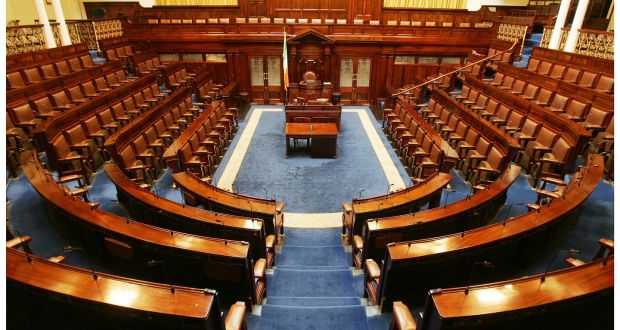When the March lockdown started, planning was done to augment Ireland’s hospital capacity. Taoiseach Leo Varadkar, Health Minister Simon Harris and HSE CEO Paul Reid held a press conference on 1st April in the huge auditorium at Citywest. Posing with newly installed beds, they announced 450 stepdown beds in the arena and 1, 000 further isolation beds in the hotel complex. They said that they planned similar facilities at 8 other centres in the country.
“So in total, being able to add over 2,000, nearly 3,000 beds, to our health service capacity … that’s in addition to the 2,000 that we managed to secure from the private hospitals”, the then-Taoiseach said. Harris added that the country’s health service would effectively grow by 5,000 beds.
Both stated that they expected “very significant pressure” on hospitals in the following weeks. Does that sound familiar this week?
Patients were cleared out of acute hospital by the HSE and many were sent untested to nursing homes at that time.
What happened to the 3,000 extra public sector beds? What happened to the 8 regional centres? Was the Government then doing what the World Health Organisation later appealed to all governments to do – to use lockdowns as the last resort and as a temporary time-buying step to re-organise and strengthen their health systems’ resources? Or did these centres and extra beds evaporate when the surge in hospital admissions predicted by NPHET failed to materialise?
By 24th June, Harris, still Health Minister, briefed journalists that the €20 million lease at Citywest would be allowed expire and that the beds at Citywest would be put into storage or sent to other health facilities, and that the Health Budget Oversight Group (senior officials of the Departments of Health, Public Expenditure and the HSE) had reported in “early May” that the use of Citywest was “currently low”.
By September, however, increasing case numbers of Covid meant that a winter plan to increase bed numbers by 480 and ICU beds by about 20 over eight months was announced in the Oireachtas by newly appointed Minister Stephen Donnelly. The April plans for extra public beds and centres had been allowed to wither to nothingness. A much smaller and far more leisurely increase in beds was now being promised.
In late September, we saw seriously increasing community transmission figures. Nphet warned of exponential increases in infections and major threats to the hospital system’s capacity. Regional lockdowns in certain counties were followed by a Level 3 status for Dublin.
Latest data shows that from mid-September onwards a crude R-number (the number of new cases in any week divided by the number of new cases in the previous week) has actually been in decline both nationally and in Dublin – from about 1.8 to just less than 1. This suggests that the previous Level 3 status of Dublin was having real effect before the newest lockdown came into force on October 21st.
And all this calls into question whether the Government was panicked into a second national lockdown by trenchant advice that it received from its own advisors.
We are now told by senior Government sources that Northern Ireland patients may have to be admitted to ICU beds in the Republic and thus “put pressure” on our health service. But we are also told that that Northern ICU facilities include 150 extra unused ICU beds at emergency northern Nightingale critical care hospitals – something we just didn’t put in place.
It’s all very well to advocate stoic acceptance of this latest lockdown. But there is no reason to believe that the precautionary principle is applied to the social and economic effects of NPHET’s dubious extrapolations. For instance, is there any evidence that bookshops or clothes shops are likely vectors for community transmission of the virus? Or that non-food items should not be sold in supermarkets?
Banning golf even with the nineteenth hole closed and all par three courses while leaving public parks open for tennis seems questionable. Reducing bus capacity by 50% means leaving passengers stranded on their way to work in essential services. Surely the present lockdown should be immediately audited for necessity.
Given the evidence that the Level 3 restrictions were working in Dublin, would it be too embarrassing to consider a reversion to that level in 2 or 3 weeks’ time? The terrible thing is that NPHET will probably claim that the present level of lockdown was responsible for the improvements already happening under Level 3.
The Oireachtas is simply not being allowed do its job either . There are people who want to prevent voting divisions on the basis that they can’t be safely conducted within Leinster House! The Government is guillotining all legislation without proper debate. On Friday last I pointed out a major error in the “house parties” legislation which seriously undermines the new Garda powers. So intent was the Government to save face having rammed the Bill though the Dáil, it knowingly forced a guillotine Seanad vote to enact a completely unworkable law. Shame on them.

